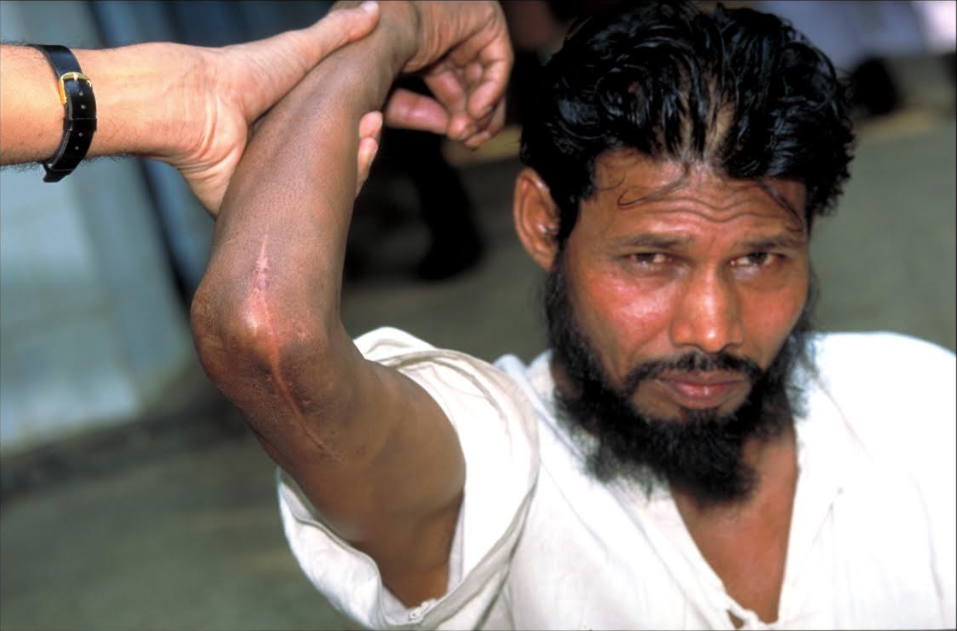[vc_row][vc_column][vc_column_text]The Supreme Court on Monday (December 4) issued a notice to the Centre seeking its response on a plea to repeal 119 laws that discriminate against leprosy patients, stigmatise and isolate them even though modern medicine completely cures the disease.
The Centre was told to reply within eight weeks.
Because of the disfigurement of individuals with untreated leprosy, people with leprosy have been shunned and isolated for many centuries. Fortunately, current multidrug therapy (MDT) cures leprosy effectively.
Leprosy is only very mildly contagious and acquisition of the disease usually occurs after long-term (months to years) contact with an untreated individual with the disease. It is passed from person to person via droplets from the nose and mouth during close and frequent contact with an untreated individual with leprosy.
Hearing a PIL, filed by Vidhi Centre for Legal Policy, alleging discrimination against people afflicted with leprosy due to archaic provisions under numerous central and state laws, the bench of Chief Justice Dipak Misra and Justices A M Khanwilkar and D Y Chandrachud asked the government to explain the existence of discriminatory laws pertaining to leprosy patients.
Appearing for petitioner, senior advocate Raju Ramachandran submitted that there are 119 laws that discriminate against leprosy patients and that these laws are violative of Articles 14, 19 and 21 of the Constitution.
The petition says that the impugned provisions “institutionalize and perpetuate the humiliation and undignified treatment of persons affected by leprosy” and resultantly “violate their right to life and dignity under Article 21 of the Constitution”.
Leprosy patients, at present, are discriminated in many ways. The PIL cites Section 13 of the Hindu Marriage Act, 1955, which allows a marriage to be dissolved by a decree of divorce on the ground that the other party has been suffering from a virulent and incurable form of leprosy.
Similarly, Section 2 of the Dissolution of Muslim Marriage Act 1939; Section 27 of the Special Marriage Act 1954 also discriminated with the persons suffering from leprosy.
It said that Section 70(3)(b) of the Orissa Municipal Corporation Act, 2003, disqualified a person affected by leprosy from contesting elections for the post of corporator of the Municipal Corporation on account of his or her affliction by leprosy.
Similarly, section 19(f) of the Rajasthan Panchayati Raj Act, 1994, disqualified a leprosy victim from contesting elections for the post of a Panch or any other member of the Panchayati Raj Institution.
Under the state Beggary Acts, people affected by leprosy are treated in the same way as people suffering from lunacy. People suffering from leprosy can be arrested and detained for an unspecified duration.
The PIL states that the World Health Organisation explains that leprosy patients need not be treated in special clinics or hospitals; instead they can be treated along with people suffering from other diseases.
The petition also says that India has an international obligation to remove the stigma associated with leprosy and promote their social inclusion. India is a signatory to the United Nations Conventions on the Rights of Persons with Disabilities, and also a member of the UN General Assembly that had passed a resolution on the Elimination of Leprosy.
The court has asked the government to explain the continued existence of laws which deny the truth that modern medicine cures leprosy.[/vc_column_text][/vc_column][/vc_row]


 India News12 hours ago
India News12 hours ago
 India News11 hours ago
India News11 hours ago
 India News2 hours ago
India News2 hours ago
 Cricket news2 hours ago
Cricket news2 hours ago
 India News46 mins ago
India News46 mins ago














